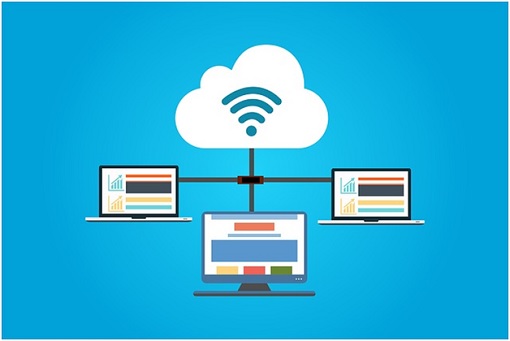Various types of businesses find cloud computing beneficial for its cost-effectiveness and scalability. Over the last decade, there have been prominent public cloud services emerging to offer “infrastructure, computing, and on-demand storage services” in an effort to help organizations decrease IT expenses.
Despite the increasing favor for the solution, concern over security with sensitive data became the priority. In order to accommodate scalability and security, developers offered an “enterprise hybrid cloud” as the solution.
The idea is to research the model thoroughly to determine if the infrastructure meets your business needs. Let’s look at the solution more in-depth.
Enterprise Hybrid Cloud
The enterprise hybrid cloud uses the positive aspects of the private and public models to create a unified environment. The SLAs or service level agreements attached leverage with the cloud advantages, basically. Plus, the data center control integrates with the model’s security.
Businesses will find that the “governance and overall management offered with this model are centralized and unified” systemwide. In order to determine if the cloud is one that will benefit your organization, it’s wise to weigh the pros and cons. Learn the advantages and barriers associated with the hybrid model at https://www.techopedia.com/hybrid-cloud-benefits-and-barriers/2/31930/ and review others here.

● What are the advantages of an “enterprise hybrid cloud solution”
An enterprise hybrid cloud encompasses the private and the public cloud models with scalability and security as the primary benefits.
The indication with a hybrid cloud is companies will have the advantage of encryption to add a layer of security for sensitive data protection to avoid potential harm from cybercriminal activity. The company maintains data control as well as that of its applications.
Despite having control, the business doesn’t have the responsibility of equipment investments or a need to ensure someone is on hand for repairs, maintenance, or replacements if issues arise.
● Are there downsides to an enterprise hybrid cloud solution
As with any goods or services, there will be downsides to contend with, and the enterprise hybrid cloud is not without these. The solution touts a complex model since it encompasses the advantages of a public and private cloud architecture. That means it takes more time to incorporate than a straightforward option.
Claims indicate one challenge being the effort to isolate problems and then the attempt to troubleshoot these. As a whole, however, the suggestion is that the overall advantages the model offers exceed the downsides.
That doesn’t necessarily mean it’s the suitable model for every business. It’s crucial to ensure the infrastructure fits your company’s requirements. Let’s look at the functionality.

Should You Take Advantage Of The Enterprise Hybrid Cloud Solution
The enterprise hybrid cloud joins the public cloud applications with your data compiled in the data center using “interconnected devices, APIs, VPNs, data virtualization,” and on.
At the end of the day, two environments become unified. Should you use this particular solution for your business? That will be based on your current infrastructure setup and the company goals. Click here to learn how the hybrid cloud can benefit a business.
● Look at your storage
A company should anticipate existing storage requirements compared to what might be necessary for the future. If you expect a good or service to achieve a “demand spike,” increasing the need for storage dramatically, the hybrid solution will be deemed the most cost-effective.
● Does the business employ remote workers
If your business employs remote staff, the enterprise hybrid solution would be ideal since the public model offers “on-demand access” the team can readily use to retrieve data. If leaders want to restrict user access to sensitive data, they will have greater control by moving these to the private model.
Final Thought
An enterprise hybrid cloud solution offers the positive components of the public and private clouds for a solution that accommodates scalability with optimum security. While it seems “the best of both worlds,” it isn’t necessarily the right move for everyone. This cloud is a complex solution. That can mean extensive time bringing it to fruition.
When designing the model for your organization, a priority will be determining whether a hybrid fits the company’s specific requirements. You can assess the pros and cons plus review various “use-cases” in helping to make an educated decision.

|
|
November 23rd, 2022 by financetwitter
|


|

|

|

|

|

|




























Comments
Add your comment now.
Leave a Reply